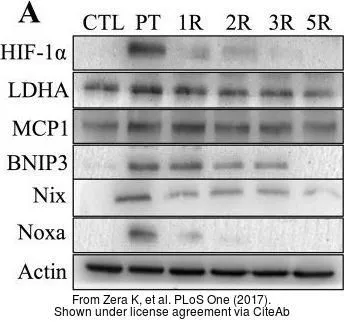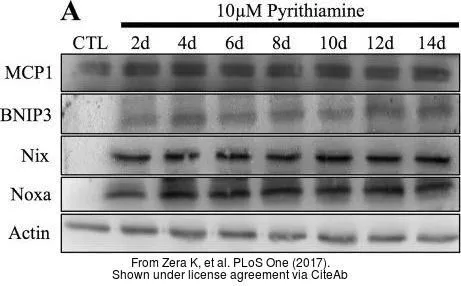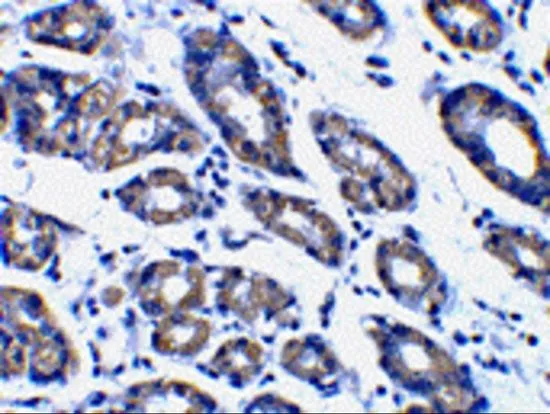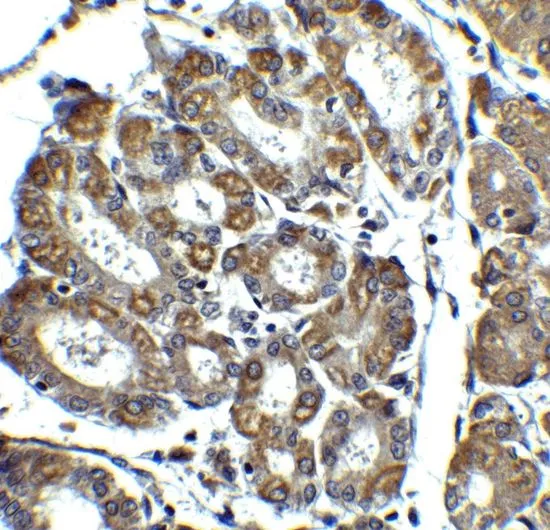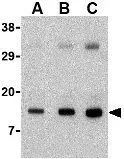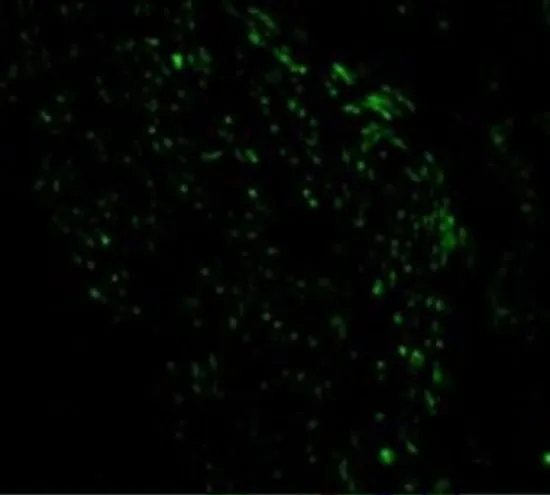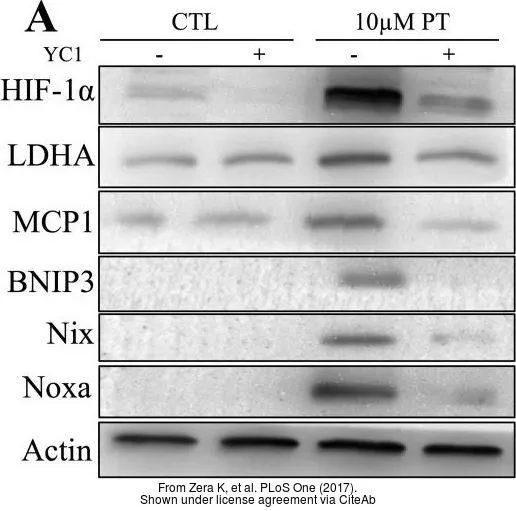
The data was published in the journal PLoS One in 2017. PMID: 29045486
Noxa antibody
GTX85521
ApplicationsWestern Blot, ELISA, ImmunoHistoChemistry, ImmunoHistoChemistry Paraffin
Product group Antibodies
ReactivityHuman, Mouse, Rat
TargetPmaip1
Overview
- SupplierGeneTex
- Product NameNoxa antibody
- Delivery Days Customer9
- Application Supplier NoteWB: 0.5 - 2 microg/mL. IHC-P: 1 microg/mL. *Optimal dilutions/concentrations should be determined by the researcher.Not tested in other applications.
- ApplicationsWestern Blot, ELISA, ImmunoHistoChemistry, ImmunoHistoChemistry Paraffin
- CertificationResearch Use Only
- ClonalityPolyclonal
- Concentration1 mg/ml
- ConjugateUnconjugated
- Gene ID58801
- Target namePmaip1
- Target descriptionphorbol-12-myristate-13-acetate-induced protein 1
- Target synonymsN; Noxa; phorbol-12-myristate-13-acetate-induced protein 1; protein Noxa
- HostRabbit
- IsotypeIgG
- Protein IDQ9JM54
- Protein NamePhorbol-12-myristate-13-acetate-induced protein 1
- Scientific DescriptionApoptosis is related to many diseases and development. The p53 tumor-suppressor protein induces apoptosis through transcriptional activation of several genes including p53R2, p53AIP1, and PUMA. A new p53 target gene, Noxa, was recently identified , which encodes a protein belonging to the subfamily of BH3-only proapoptic proteins. Noxa and PUMA are both transcriptional targets of p53 and BH3-only proteins. X-ray irradiation increased p53-dependent Noxa mRNA and protein levels. Noxa, when ectopically expressed, interacted with anti-apoptotic Bcl-2 family members, resulting in the activation of caspase-9 . Noxa, like PUMA, localized to mitochondria and induces apoptosis in response to p53 (1-3). Noxa and PUMA may represent direct mediators of p53-induced apoptosis. Increased levels of p53 and its target gene Noxa was found in the impaired tumor development (4).
- ReactivityHuman, Mouse, Rat
- Storage Instruction-20°C or -80°C,2°C to 8°C
- UNSPSC12352203
References
- Thiamine deficiency activates hypoxia inducible factor-1alpha to facilitate pro-apoptotic responses in mouse primary astrocytes. Zera K et al., 2017, PLoS OneRead more

